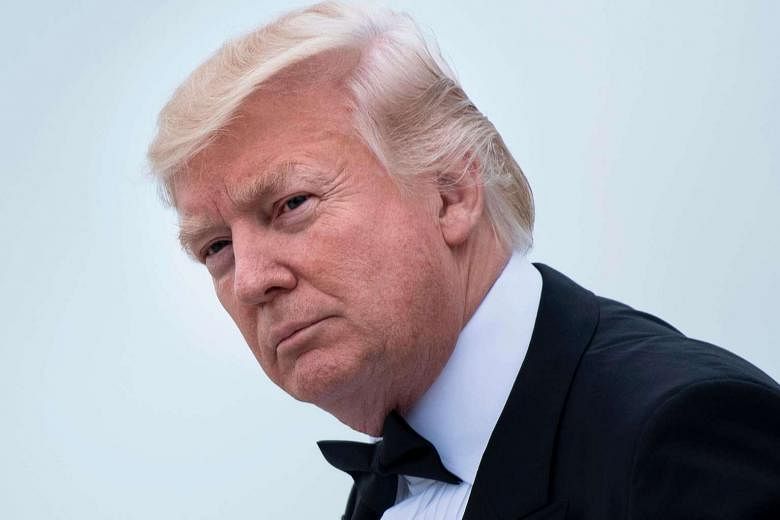SINGAPORE (Bloomberg) - A hiatus in "freedom of navigation" operations in the South China Sea under Donald Trump's presidency does not mean the disputed waterway is becoming a diminished priority for the US, according to Pacific Fleet Commander Scott Swift.
"We just went through a change in administration," Admiral Swift said on Monday (May 8) in a briefing in Singapore.
"I am not surprised that process has continued in a dialogue as the new administration gets its feet on the ground and determines where would be appropriate to take advantage of these opportunities and where we may want to wait."
"We just present the opportunities when we have a ship in the area and there is an area of interest," he said, adding the Navy continues to propose such operations.
The US hasn't conducted any Fonops in the South China Sea since Trump took office, a Pentagon official said previously. Such operations - where ships sail near features claimed by China and others to challenge their assertions to exclusive access - have typically produced protests from Beijing.
The US is not a claimant in the South China Sea, where China has built military airstrips and boosted its naval presence.
Trump called out China during his election campaign for its reclamation of rocks and reefs in the waterway, one of the world's busiest shipping lanes that carries more than US$5 trillion in annual trade.
But he's since made clear he's counting on cooperation with Beijing to rein in North Korea, and has frequently praised President Xi Jinping.
Sense of Uncertainty
Leaders of the 10-nation Association of Southeast Asian Nations have also signalled a warmer approach to China in recent months. They put out a statement after a late-April summit in Manila noting "the improving cooperation between Asean and China" in the South China Sea. They also welcomed "progress to complete a framework of the Code of Conduct in the South China Sea" by the middle of this year.
Swift downplayed any shift in policy, saying within the military the process for proposing Fonops continued. He said there would be advantages in doing them, noting a sense of uncertainty in Asia since the election about the US' future role.
"From that sense of uncertainty comes a sense of angst in the region," he said. "One could argue that Fonops would be one way to reduce that sense of uncertainty." Still, Swift said, they also carried negative implications in the way they were publicized.
"We are losing the broad message that this is a rules-based approach," he said.

